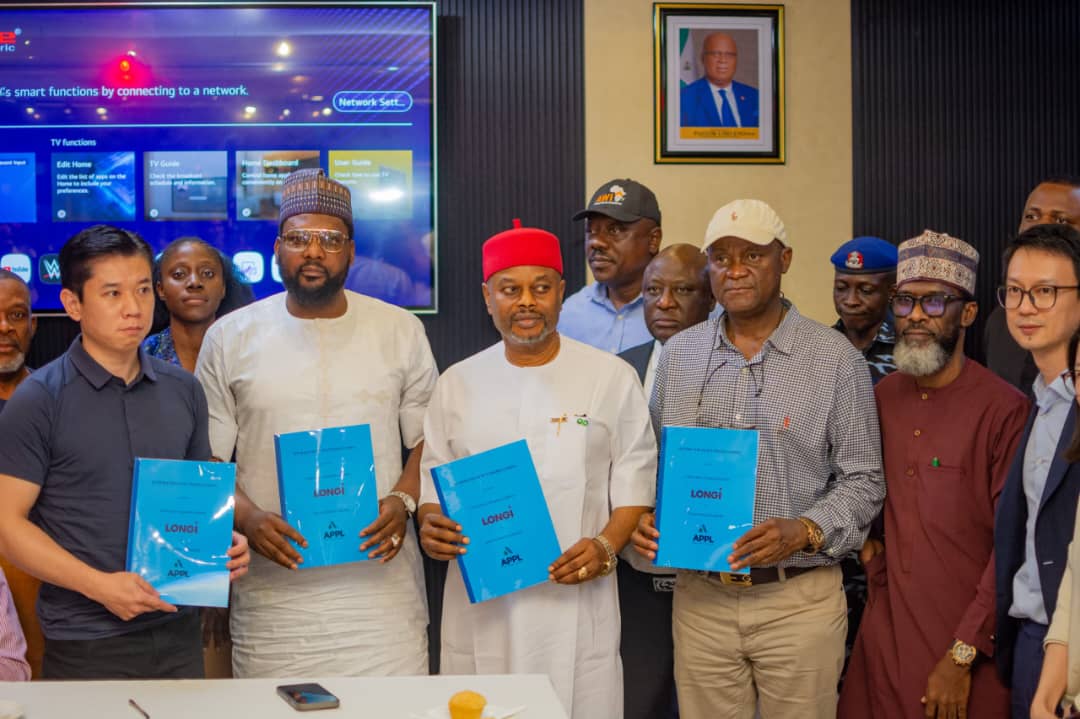By Omoniyi Salaudeen
Hon. Wale Oshun is a chieftain of the Afenifere Renewal Group.
In this interview, he barred his mind on a range of issues, including the ongoing constitution review and the irregularities that make the process unnamable.
What are your thoughts on the routine review of the constitution by the National Assembly?
Many Nigeria leaders like the former Secretary General of the Common Wealth, Emeka Anyaoku, Edwin Clark, Ayo Adebanjo, and a host of others, have spoken about the need to for us to have a new constitution. And it is not a question of amending and amending, it is about complete overhaul of the present constitution by a constituent assembly made up of members elected by the people to write a new constitution. But the National Assembly arrogates to itself the power to amend the constitution because it is so provided in the 1999 constitution. Some of our leaders have spoken about the flaws in the existing constitution and those flaws are not the kind of flaws that can be fixed by the National Assembly. There must be a deliberate attempt at rewriting a new constitution. This is why a lot of people are not showing interest in what is going on in the National Assembly. We cannot continue to tinker with the present constitution because it will serve no purpose. What needs to be done is a comprehensive attempt to write a new constitution by the people so elected to do so. And this must take into account the kind of federal structure that allows for the autonomy of the federating units and a centre that can cater for the entire federation, but not too strong to subjugate any of the constituent units. Until that is done, we will be wasting our time.
How about the reform of the Electoral Act?
Electoral law is also predicated on the constitution. If the constitution is now being critiqued, certainly it will affect the electoral law. Ordinarily, even our electoral law must support the autonomy of the federating units. If you look at some countries, all elections are conducted by the federating units. Even if we don’t want to do that, we must agree that no law, including the electoral law, should stand unless it supports the concept of true federalism. It is arrant nonsense for people to be suggesting that a national electoral commission should be set up to conduct local government elections. Local governments are component of the federating units. The federating units should be responsible for their funding and determining the form of government that is suitable for them. If, for instance, the Northwest wants a parliamentary system of government, it should be allowed to opt for it. Every part of the country should be able to adopt what suits it.
What specific changes would you like to see in the electoral laws under the ongoing review process?
In 1993, an election was held in this country. At the end of that election, it was adjudged to be free and fair. That implies that what is most important is the electoral umpire. How transparent has the conduct of elections been? If the process is transparent, accepting the outcome of an election won’t be a problem. Once the process is transparent, we will start building a system that works. There is no perfect society anywhere in the world. Everywhere there is always the desire for people to win an election. But once the umpire is seen to be transparent, there will be less contention. Of course, politicians will always argue, but the obvious thing is that those who lose election know that they lose. They know which election they are likely to lose and which election they are likely to win. If the umpire upholds the integrity of the process, people will develop confidence in the electoral system.
The leading opposition parties are currently embroiled in one internal crisis or the other, fueling the fear that Nigeria may end up being a one-party state. Is the fear real or imaginary?
If you look back, there was a time when the Peoples Democratic Party (PDP) became the only dominant party in the country. At that time, it managed to undermine the All Nigeria Peoples Party (ANPP) and even the Alliance for Democracy (AD) that was the dominant party in the Southwest. It got to a point when the then National Chairman, Vincent Ogbulafor, said the PDP would rule for 60 years. The truth is that managing successes can sometimes be a problem. The desperation to stay in power is because politics is the only rewarding occupation; whereas, it is not supposed to be so. Nigeria cannot be a one-party state because there will come a time when the government in power will have its own internal conflicts which will be difficult to manage. Remember that at a time, the ANPP, the ACN and other opposition parties came together to dislodge the PDP. The lesson ought to have been learned to allow a level playing field. If it is not allowed, one day will come when the opposition will be big enough to confront the APC.
How will the country make politics to be less attractive?
There was a time when the heads of some agencies in Great Britain earned higher salaries than the Prime Minister. If our society is functioning as it should be, there will be pressure on politicians to cut down the cost of governance. But you find a situation where people will come to a councillor or a Senator to seek financial assistance to settle the school fees of their children or their wives’ hospital bills which they have no business with. That has continued to put pressure on the political class to look for income which they should not ordinarily have access to. Why should the lawmakers be talking about constituency allowances other than the basic salaries they are entitled to? However, what we find out now is that Senators and House of Reps members have constituency allowances which have made it difficult for them to publicly declare the totality of their monthly earnings. And because the constituents also believe that they are carrying their money, they always expect them to deliver it at their doorstep. Why should the hospital bill of your wife who delivered a baby yesterday be the concern of your Senator? People believe because you are there you must pay the school fees of their children. We need to evolve to a stage where the productive sector of the economy should be able to take care of all citizens.
The Federal Government has adopted measures to address the current hardship of the economy, including conditional cash transfers to the vulnerable and the distribution of palliatives. Is that a sustainable way of tackling poverty?
Local governments are the closest to the people at the grassroots. But most of them don’t even have agricultural equipment. Less than 10 per cent of local governments have agric extension programme. If we really want to develop, we need to focus on productivity in the agric sector to ensure food security and raw materials for our industries.




 2 weeks ago
21
2 weeks ago
21








 English (US) ·
English (US) ·